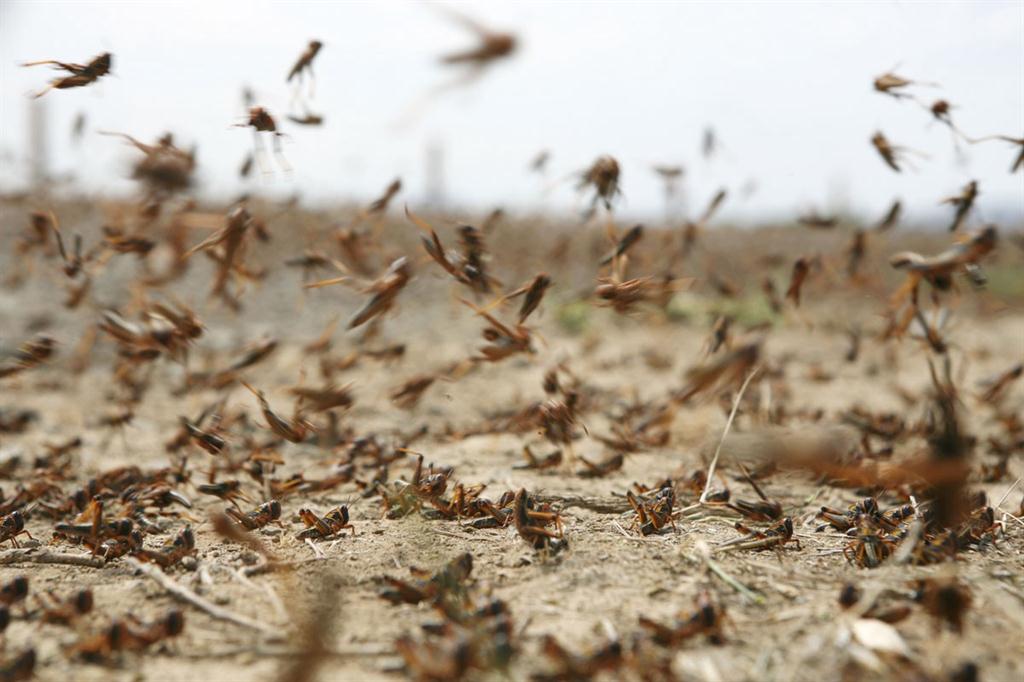Climate change to blame for increase in plant pests
The FAO estimates that annually up to 40% of global crop production is lost to pests.
ELLANIE SMIT
WINDHOEK
Due to the impact of climate change, plant pests that ravage economically important crops are becoming more destructive and pose an increasing threat to food security and the environment, a scientific review found.
‘The Scientific Review on the Impact of Climate Change on Plant Pests: A global challenge to prevent and mitigate plant pest risks in agriculture, forestry and ecosystems’ was prepared under the auspices of the secretariat of the International Plant Protection Convention, hosted by the United Nations’ Food and Agriculture Organisation (FAO).
"The key findings of this review should alert all of us on how climate change may affect how infectious, distributed and severe pests can become around the world," the FAO director-general Qu Dongyu said.
The FAO estimates that annually up to 40% of global crop production is lost to pests.
By the end of April, Namibia was struggling to contain the third wave of an African migratory red locust outbreak, which had already destroyed 719 000 hectares of grazing land and 1 207 hectares of crop fields in 10 of the country's 14 regions.
Some pests, like the fall armyworm which feeds on a growing number of crops - including maize, sorghum, millet - and fruit flies, which damage fruit and other crops, have already spread due to the warmer climate.
“Others, such as the desert locust, the world's most destructive migratory pest, are expected to change their migratory routes and geographical distribution because of climate change,” according to the scientific review.
Time-consuming and expensive
The review analysed 15 plant pests that have spread or may spread due to climate change.
It stressed that pests are often impossible to eradicate once they have established themselves in a new territory, and managing them is time-consuming and expensive.
It added that climate change-induced pest dispersal and intensity threaten food security as a whole. Small holders, people whose livelihoods rely on plant health and those who live in countries beset by food insecurity are especially vulnerable to these risks.
Invasive pests are also one of the main drivers of biodiversity loss.
The review put forward a number of recommendations to mitigate the impact of climate change on plant health.
Chief among them is increased international cooperation, which is deemed crucial as the effective management of plant pests by one farmer or one country affects the success of others.
The review also stressed the need for more research into the impact of climate change on pests and on plant health, and for more investments in strengthening national phytosanitary systems and structures.
WINDHOEK
Due to the impact of climate change, plant pests that ravage economically important crops are becoming more destructive and pose an increasing threat to food security and the environment, a scientific review found.
‘The Scientific Review on the Impact of Climate Change on Plant Pests: A global challenge to prevent and mitigate plant pest risks in agriculture, forestry and ecosystems’ was prepared under the auspices of the secretariat of the International Plant Protection Convention, hosted by the United Nations’ Food and Agriculture Organisation (FAO).
"The key findings of this review should alert all of us on how climate change may affect how infectious, distributed and severe pests can become around the world," the FAO director-general Qu Dongyu said.
The FAO estimates that annually up to 40% of global crop production is lost to pests.
By the end of April, Namibia was struggling to contain the third wave of an African migratory red locust outbreak, which had already destroyed 719 000 hectares of grazing land and 1 207 hectares of crop fields in 10 of the country's 14 regions.
Some pests, like the fall armyworm which feeds on a growing number of crops - including maize, sorghum, millet - and fruit flies, which damage fruit and other crops, have already spread due to the warmer climate.
“Others, such as the desert locust, the world's most destructive migratory pest, are expected to change their migratory routes and geographical distribution because of climate change,” according to the scientific review.
Time-consuming and expensive
The review analysed 15 plant pests that have spread or may spread due to climate change.
It stressed that pests are often impossible to eradicate once they have established themselves in a new territory, and managing them is time-consuming and expensive.
It added that climate change-induced pest dispersal and intensity threaten food security as a whole. Small holders, people whose livelihoods rely on plant health and those who live in countries beset by food insecurity are especially vulnerable to these risks.
Invasive pests are also one of the main drivers of biodiversity loss.
The review put forward a number of recommendations to mitigate the impact of climate change on plant health.
Chief among them is increased international cooperation, which is deemed crucial as the effective management of plant pests by one farmer or one country affects the success of others.
The review also stressed the need for more research into the impact of climate change on pests and on plant health, and for more investments in strengthening national phytosanitary systems and structures.




Comments
Namibian Sun
No comments have been left on this article